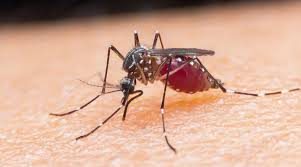The World Health Organization (WHO) Thursday recommended widespread use of the RTS,S/AS01 (RTS,S) malaria vaccine among children in sub-Saharan Africa and in other regions to prevent high P. falciparum malaria transmission.
The recommendation is based on results from an ongoing pilot programme in Ghana, Kenya and Malawi that has covered more than 800 000 children since 2019.
The UN health agency said it has recommended the “groundbreaking” vaccine based on the advice of two WHO global advisory bodies – one for immunization and the other for malaria.
“In the context of comprehensive malaria control the RTS,S/AS01 malaria vaccine be used for the prevention of P. falciparum malaria in children living in regions with moderate to high transmission as defined by WHO,” it says.
The vaccine should be provided in a schedule of 4 doses in children from 5 months of age for the reduction of malaria disease and burden, the agency adds.
Malaria remains a primary cause of childhood illness and death in sub-Saharan Africa. More than 260 000 African children under the age of five die from malaria annually.
“For centuries, malaria has stalked sub-Saharan Africa, causing immense personal suffering,” said Dr Matshidiso Moeti, WHO Regional Director for Africa.
“We have long hoped for an effective malaria vaccine and now for the first time ever, we have such a vaccine recommended for widespread use,” she said. “Today’s recommendation offers a glimmer of hope for the continent which shoulders the heaviest burden of the disease and we expect many more African children to be protected from malaria and grow into healthy adults.”
The WHO says key findings of the pilots informed the recommendation based on data and insights generated from two years of vaccination in child health clinics in the three pilot countries.
MG/abj/APA


